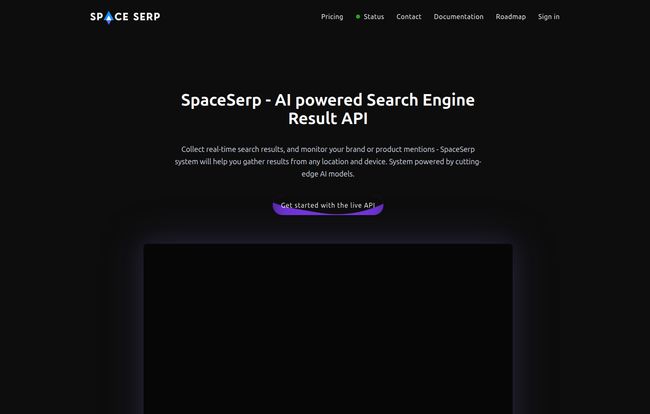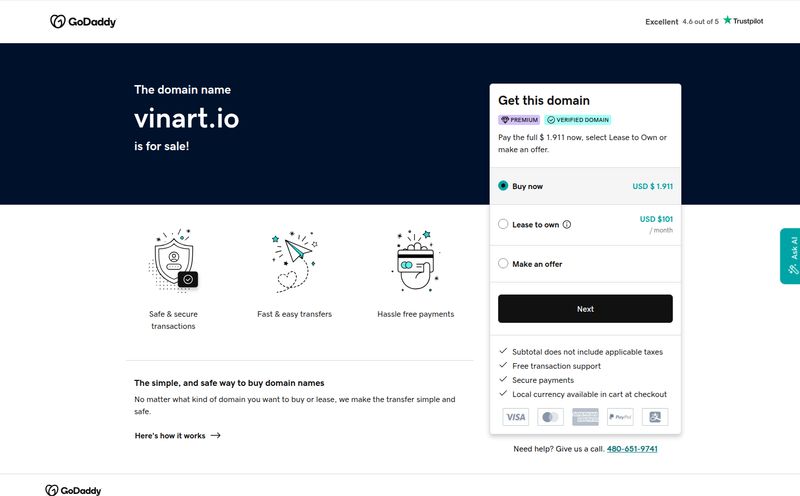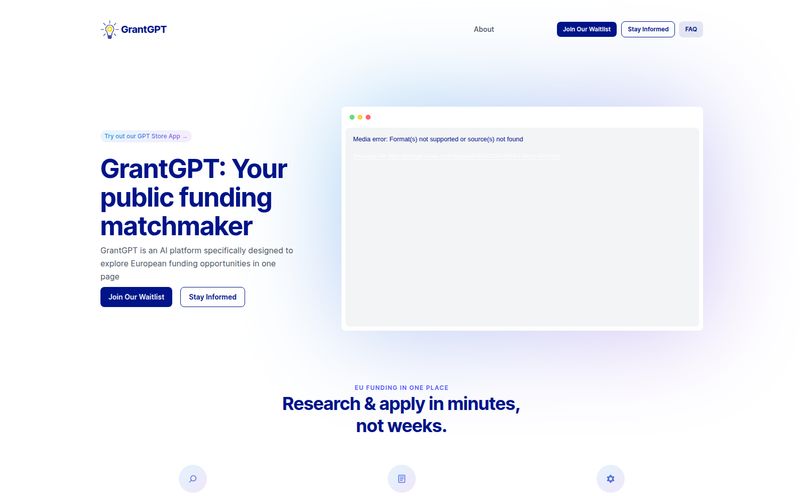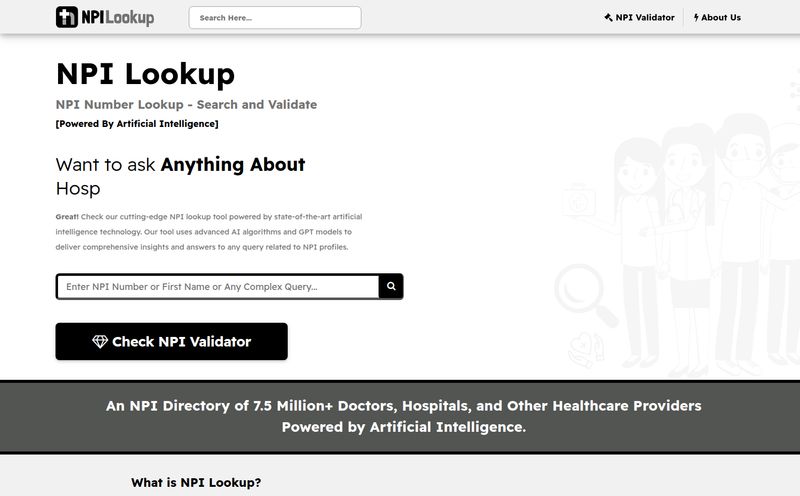For years, getting clean, reliable data directly from Google’s search results has been… well, a pain in the butt. You either wrestle with your own home-brewed scrapers that break every time Google sneezes, or you pay a fortune for enterprise-level tools that have more features than you'll ever use. It’s a constant battle. I've been in the SEO trenches for over a decade, and I’ve seen my fair share of 'game-changing' data tools come and go.
So, when a tool like SpaceSerp pops up on my radar, claiming to be an “AI-powered Search Engine Result API,” my first reaction is healthy skepticism. My second, of course, is intense curiosity. Could this finally be the tool that hits that sweet spot between raw power and usability? The one that doesn't require a team of five developers to maintain?
I decided to take a look under the hood. This isn't just a list of features. This is my take on whether SpaceSerp is actually worth your time and money.
So What Is SpaceSerp, Really?
Let's cut through the jargon. At its heart, SpaceSerp is a SERP API. Think of it like a direct, clean pipeline to Google's search results. Instead of you having to visit Google, run a search, and then try to copy-paste the results (which is a nightmare), SpaceSerp does it for you and delivers the information in a neat, organized package. We're talking formats that developers love, like JSON, or something as simple as a CSV file you can open in Excel or Google Sheets.
The core promise is to give you real-time, structured search data from any location, on any device. For an SEO, that’s the holy grail. It means no more outdated cache, no more wondering if your rank tracking is accurate, and no more guessing what users in another country are seeing.

Visit SpaceSerp
The Features That Actually Matter to SEOs
A feature list is just a list. What matters is how those features solve our day-to-day problems. After poking around, a few things really stood out to me.
Geotargeting and Device Management Done Right
I can't stress this enough: if your business operates in multiple cities or countries, you absolutely cannot trust the search results you see on your own computer. SpaceSerp lets you pull results from literally any location worldwide. Want to see what the SERP for "best running shoes" looks like in Sydney, Australia on an iPhone? You can do that. This is critical for local SEO, international campaigns, and honestly, just getting an accurate picture of the search landscape. It's a non-negotiable feature, and they seem to handle it well.
It's Not Just About Ten Blue Links Anymore
The modern Google SERP is a chaotic collage of different elements. You’ve got organic results, sure, but also job packs, video carousels, the Knowledge Graph, local map packs, and news articles. A simple scraper often misses all this context.
SpaceSerp's ability to parse the entire page content is a massive plus. It understands and separates all these different result types. Why does this matter? Because your competition isn't just the site ranking one spot above you. It's the YouTube video, the job listing, or the local business that's stealing clicks from the results page. Understanding the full SERP is understanding your real competition. This is where that "AI-powered" claim starts to make sense; it's not just grabbing text, it's understanding the structure.
Automation That Doesn't Require a PhD
I love a good automation workflow. SpaceSerp allows you to schedule searches, which is perfect for ongoing tasks like rank tracking or brand monitoring. You can set it up to check your most important keywords daily, weekly, or whatever you need, and just have the data delivered. This saves a ton of manual work and helps you spot trends (or disasters) early. For agencies managing multiple clients, this feature alone could be worth the price of admission.
Let's Talk About the Money: SpaceSerp Pricing
Alright, the all-important question. How much is this going to cost me? I was pleasantly surprised by the transparency here. They have a clear, tiered pricing model that seems to cater to a few different types of users. Plus, they offer a 20% discount if you pay annually, which is a nice touch.
| Plan | Price/Month | Searches/Month | Best For |
|---|---|---|---|
| Hobby | $14.99 | 1,000 | Individuals, small projects, testing the waters. |
| Basic | $39.99 | 5,000 | Freelancers or small businesses with moderate needs. |
| Pro | $79.99 | 15,000 | SEO agencies and in-house teams. |
| Ultra | $149.99 | 50,000 | Heavy users, data-intensive applications. |
The Hobby plan at fifteen bucks is a fantastic entry point. It's enough to get a real feel for the service without a big commitment. The tiers scale pretty reasonably, and the inclusion of team management and chat support across all paid plans is a good look. They also have custom plans if you're an enterprise-level user, which is standard practice.
Who Is This For? And Who Should Probably Pass?
Let's be real, no tool is for everyone.
SpaceSerp is definately for you if:
- You're an SEO agency or consultant who needs accurate, location-specific data for client reports.
- You're a developer building a custom SEO tool, dashboard, or application.
- You're an in-house marketer who needs to automate rank tracking or competitive analysis.
- You're a data scientist who needs a reliable source of SERP data for analysis.
You might want to pass if:
- You're a small blogger who is perfectly happy with the data from Google Search Console.
- The term "API" makes you break out in a cold sweat. While their "Playground" makes testing easy, fully using the tool requires some technical know-how or a developer to help integrate it.
Think of SpaceSerp as a high-performance engine. It's incredibly powerful, but you still need to build the car around it. It's not a ready-to-drive vehicle like Semrush or Ahrefs. It's the raw ingredient that powers those kinds of tools.
My Final Verdict
So, is SpaceSerp the SERP API we've been waiting for? I'm leaning towards a strong 'yes'. It strikes a great balance. It’s powerful enough for serious data work, with features like complete SERP parsing and automation that professionals need. But it's also accessible, with a friendly pricing model and a 'Playground' that lowers the barrier to entry.
It avoids the two major pitfalls of this space: it's not a brittle, unreliable scraper, and it's not a bloated, outrageously expensive enterprise platform. It sits right in that productive middle ground. If you're in the business of SEO and you need clean, reliable search data on demand, I think SpaceSerp is a very, very compelling option that you should seriously consider.
Your SpaceSerp Questions Answered
Here are a few quick answers to questions I imagine are bubbling up.
What is a SERP API even used for?
Primarily for things like building your own rank tracker, monitoring brand mentions, performing deep competitor analysis, gathering data for SEO software, or analyzing SERP feature trends across different locations and devices.
Can I use SpaceSerp if I can't code?
You can use their 'Playground' to manually run searches and see the data without coding. But to get the full benefit, like automating tasks or integrating it into your own systems, you'll need some basic API knowledge or a developer to help you out. The output can be a simple CSV file, which is very non-coder friendly.
How is this different from just scraping Google myself?
In three ways: reliability, structure, and scale. Self-made scrapers break constantly as Google changes its code. SpaceSerp handles that maintenance for you. It also structures the data for you, saving you a massive amount of parsing work. Finally, they manage the proxies and infrastructure to perform searches at scale without getting blocked.
What kind of support can I expect?
According to their pricing page, all paid plans come with chat support and team management features. They also list a support email ([email protected]) on their site, which is always a good sign.
Is there a free trial for SpaceSerp?
The site has a prominent "Get started with the live API" button, which usually implies some kind of free access to test things out, even if it's limited. The $14.99 Hobby plan is also a very low-risk way to trial the service with a decent number of searches.



